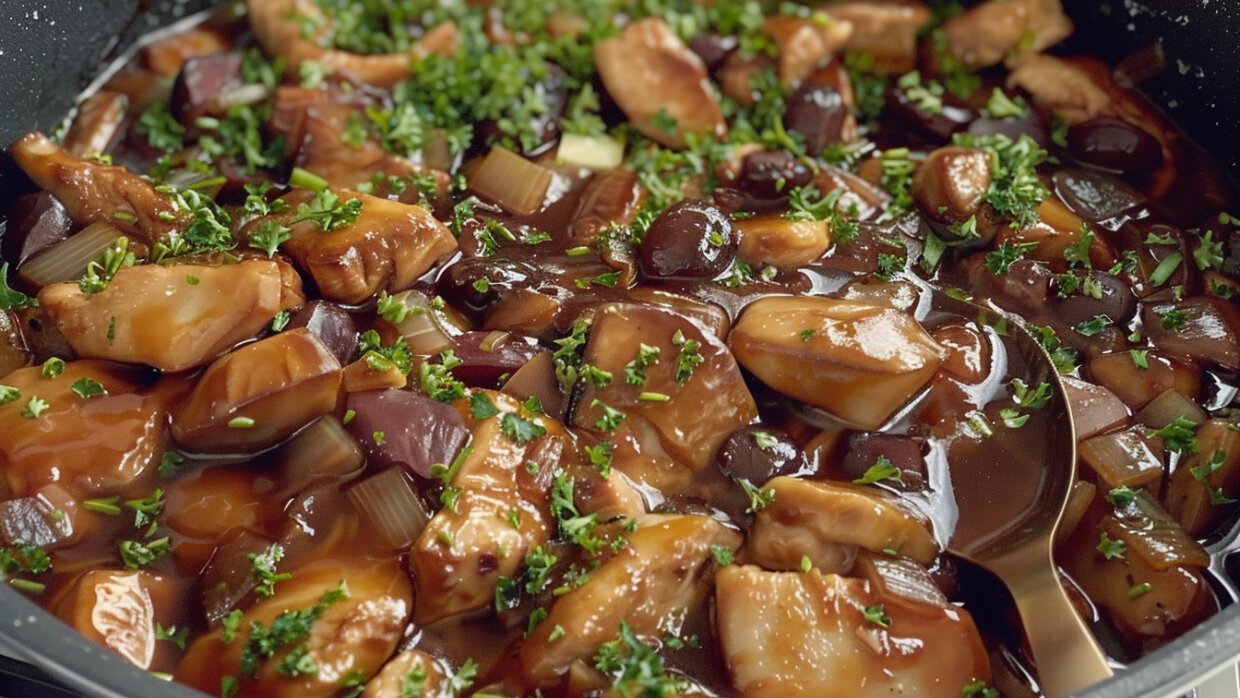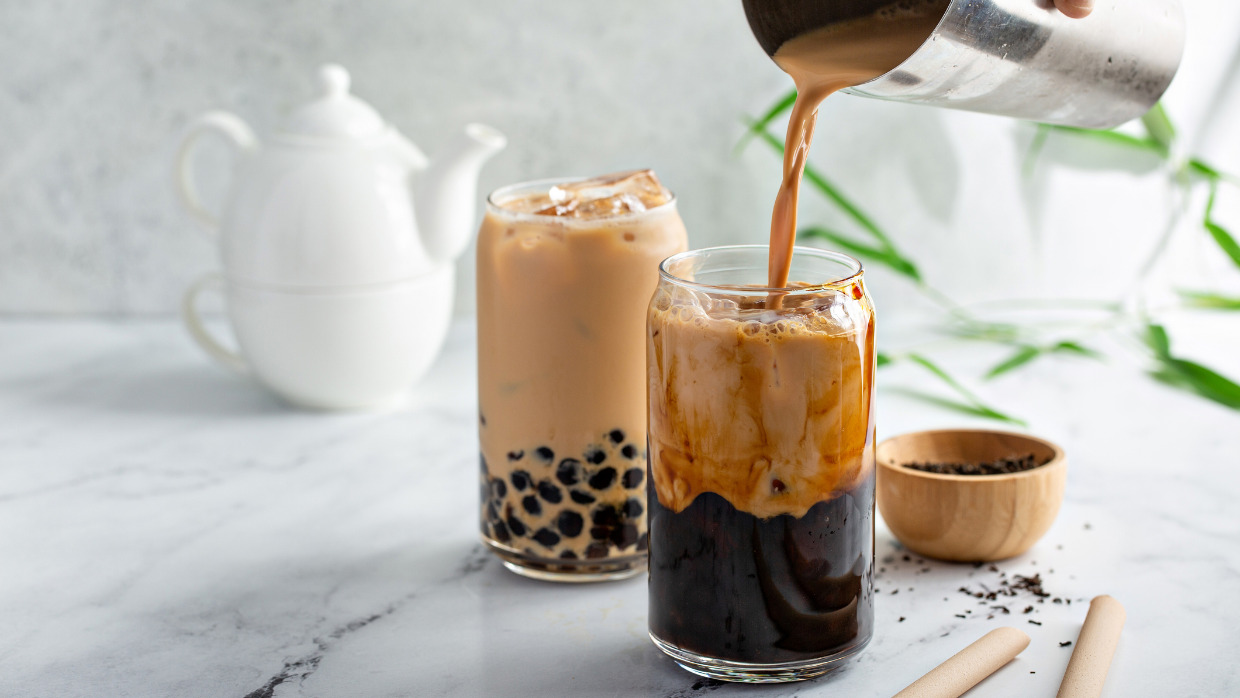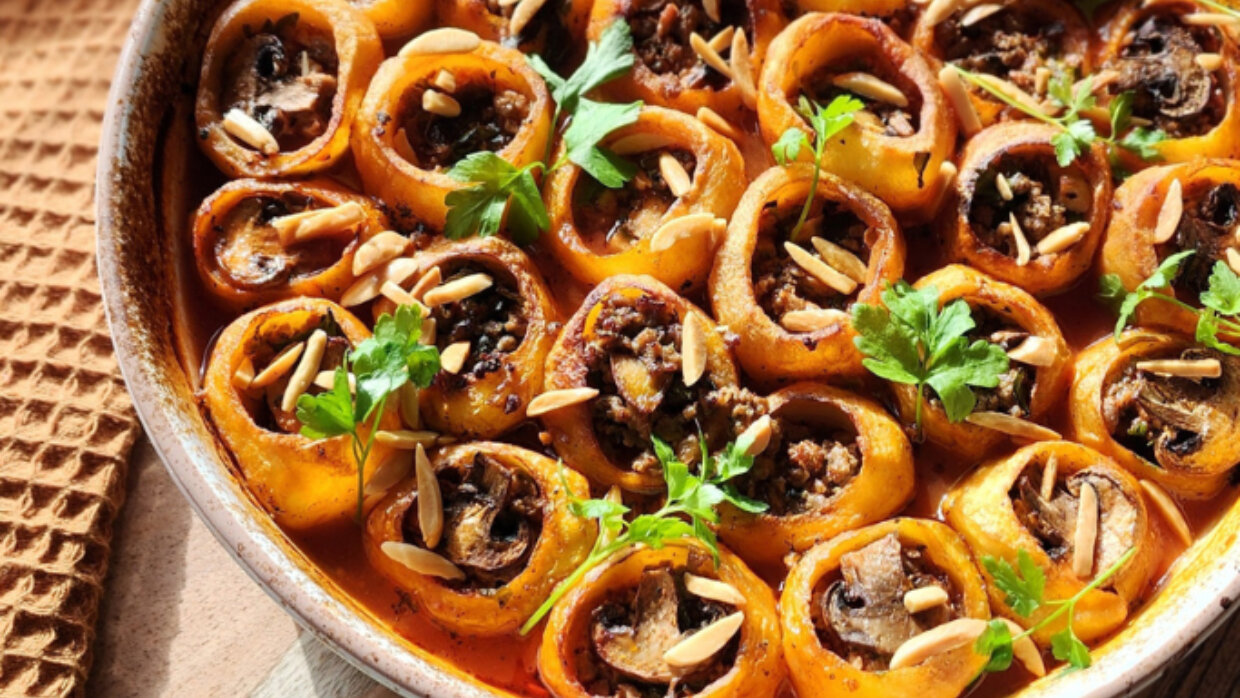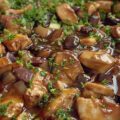New literary cookbook, Kugels & Collards, compiled by Rachel Gordin Barnett and Lyssa Kligman Harvey, brings Southern Jewish food to life through recipes coupled with first-person narratives. There is no better way to understand the power of food than through memories and stories shared by the chefs themselves. We spoke with Gordin Barnett to learn all about Jewish food in South Carolina.
Q: Kugels & Collards is part essay collection, part cookbook. Can you tell us a little about the decision to create the book in this blended form?
Kugels & Collards began as a project with the Columbia Jewish Heritage Initiative of Historic Columbia (SC). Historic Columbia was documenting Columbia’s Jewish history through a variety of vehicles – oral histories, walking tours, online tours, and historic markers. Lyssa Harvey and I, as volunteers on the project, had a hunch that food would be a great vehicle for telling family history. We asked people to write about their favorite food memory/recipe/best thing mother or grandmother made and give us a couple of recipes and photos. The format worked so well in fact that we expanded statewide with the book, Kugels & Collards Stories of Family, Food, and Tradition in Jewish South Carolina. Unexpectedly, but happily, we have created an archive of family stories and recipes that add to the documentation of the history of South Carolina’s Jewish community.
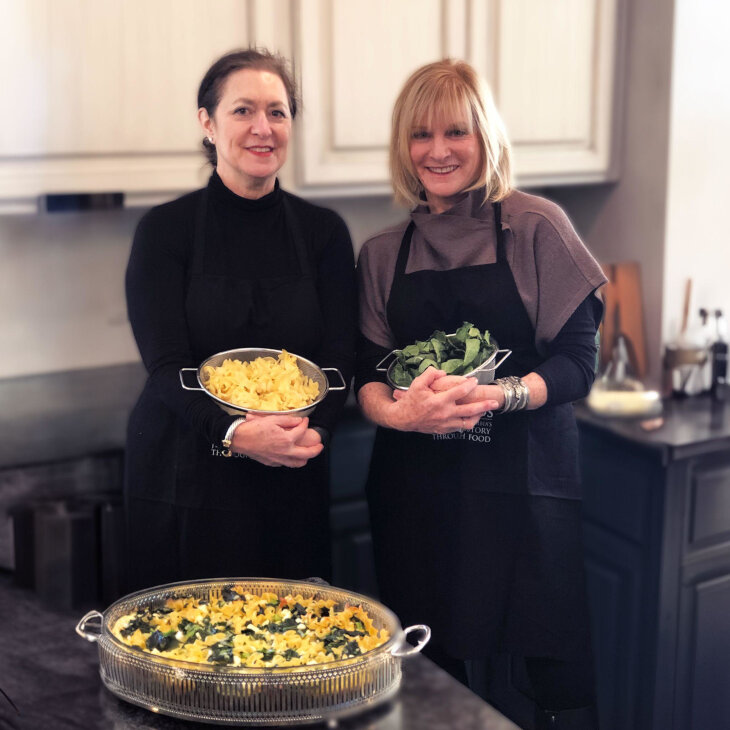 The Authors
The Authors
Q: How did you decide which recipes to include in the cookbook? What makes a recipe truly both Jewish and South Carolinian?
The Southern Jewish table is a combination of traditional Jewish and Southern recipes that co-exist. Our contributors to the book gave us their family recipes that supported their essays. We had to make some decisions (we received many chopped liver recipes) and had to balance these.
Q: If you could only choose one thing, what is the one thing you would want people to know about Jewish food from South Carolina?
Our Jewish family recipes are not dissimilar to other Jewish recipes. In fact, many came from our immigrant parents and grandparents. The difference in the Southern Jewish table is the Southern recipes that accompany and enhance our table. Cooking Southern in a kosher kitchen is different, as there is no pork used for seasoning vegetables. Many Southern cooks traditionally used pork for seasoning. Obviously, that was not accepted in a kosher kitchen. As Rhetta Mendelsohn says in her essay, “We ate like our Southern neighbors, but with a few notable exceptions.”
Q: What surprised you most during your journey creating Kugels & Collards?
What strikes us when we review the book in its entirety is that the memories, the stories, and the food are universal, whether you are from Eutawville or Charleston. We’ve come to realize that food is a significant unifier in the southern Jewish experience.
Q: Do you have a personal favorite recipe from Kugels & Collard? If so, what is it and why?
I’ve never been able to cook a luscious kugel (mine have been really dry) and Grandma Ida’s Lokshen Kugel has now filled that void. It’s rich and delicious.
Q: What ingredients would you say are most important to have on a Southern Jewish table?
For a holiday table, it can be traditional dishes such as brisket, kugel, chicken soup with matzo balls and Southern vegetable dishes such as Annie Gailliard’s Okra Gumbo or Ezella’s Kosher Collards.
Q: Talk to us about the process of creating this book. How did you find the individuals whose stories and recipes are included? Did you ask them to write essays, or did you find people who already had essays written?
Kugels & Collards began as a Columbia-focused blog in May 2017 with our first posts. In 2019, we were asked to submit a proposal to the University of South Carolina Press, with the intent of expanding statewide. I am the Executive Director of the Jewish Historical Society of South Carolina and during the pandemic, we were hosting online programs. I would “pitch” the idea and ask folks to contact us about contributing to the book. We also have a large network of family and friends and invited folks to contribute. We wanted geographic diversity so we would reach out to those we knew in different towns. We felt it was important to include stories from smaller towns across the state as well, so many of our stories come from those who grew up in small town South Carolina but now reside outside of the state. We had good stories from the blog that made it into the book. We also Zoomed with folks and did interviews and then wrote stories about their families. The book took four years to produce. We know there are many more stories to be told and this is a snapshot of Jewish South Carolina.
Q: How do you think Kugels & Collards will impact the global conversation around Jewish food?
We hope that people will consider talking with their family members about their recipes and family history. Go into the kitchen and cook that wonderful brisket or kugel with your mother or grandmother and document it. Many of the recipes in Kugels & Collards were “told” - that is, never written down. The idea of preserving recipes isn’t new but we hope that our book will engage folks to talk about their own family stories and recipes.





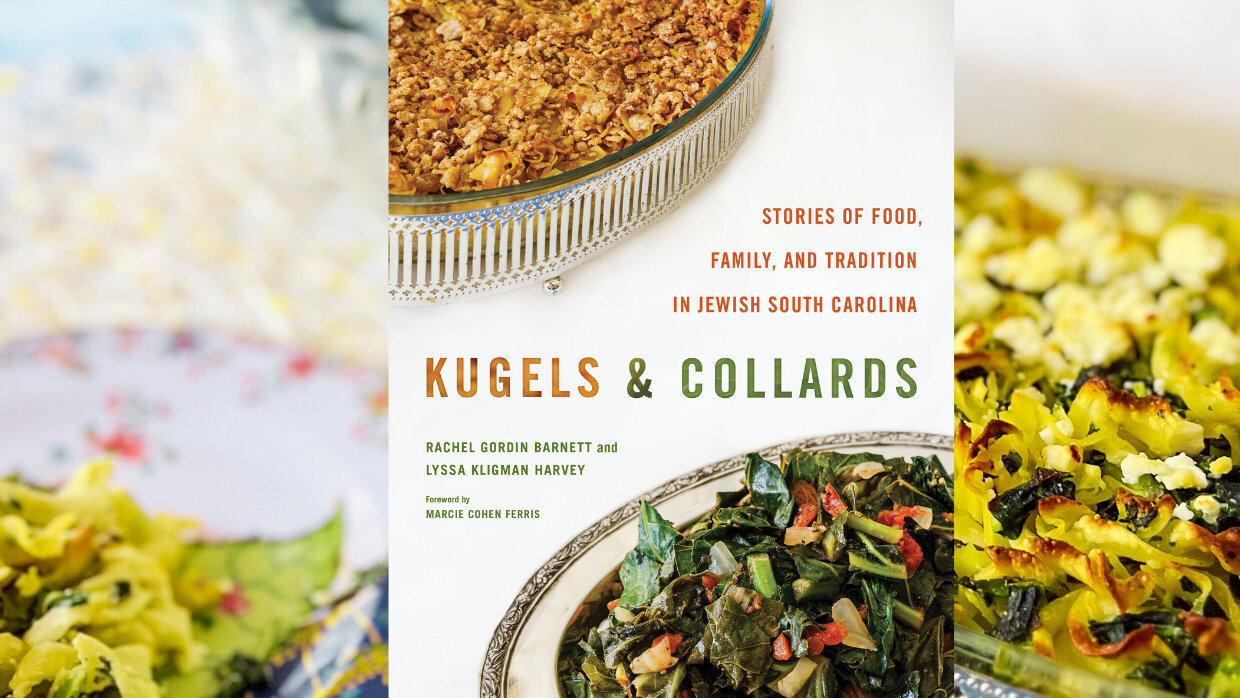
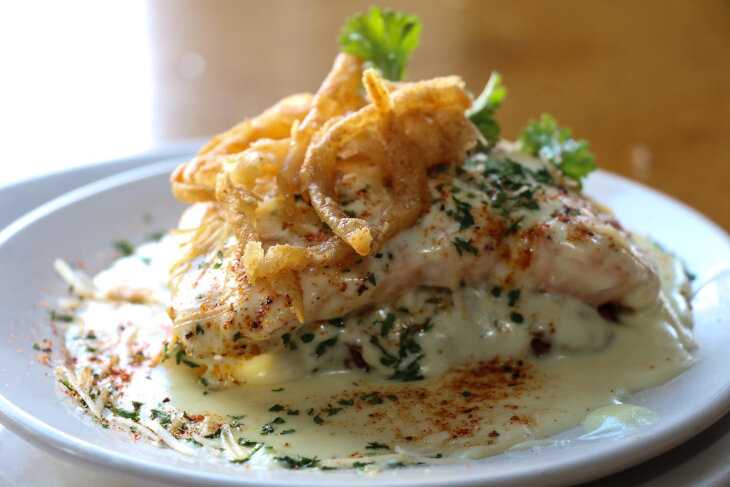 Salmon and Grits
Salmon and Grits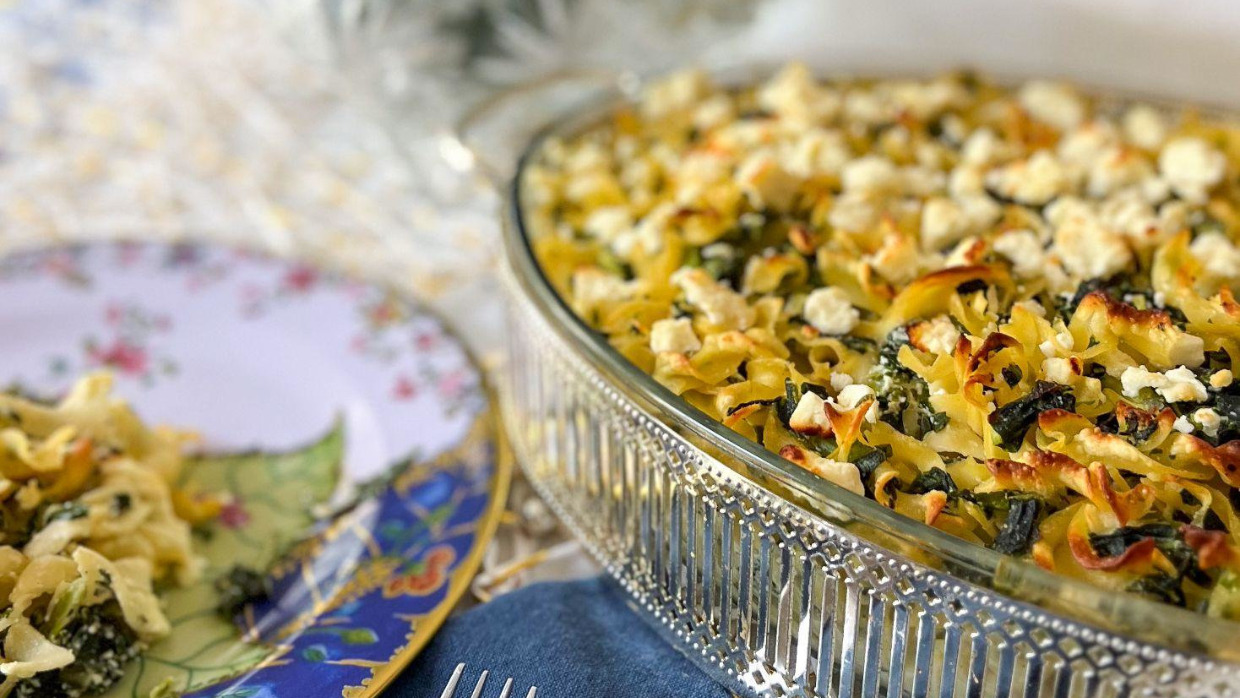 Savory Kugel
Savory Kugel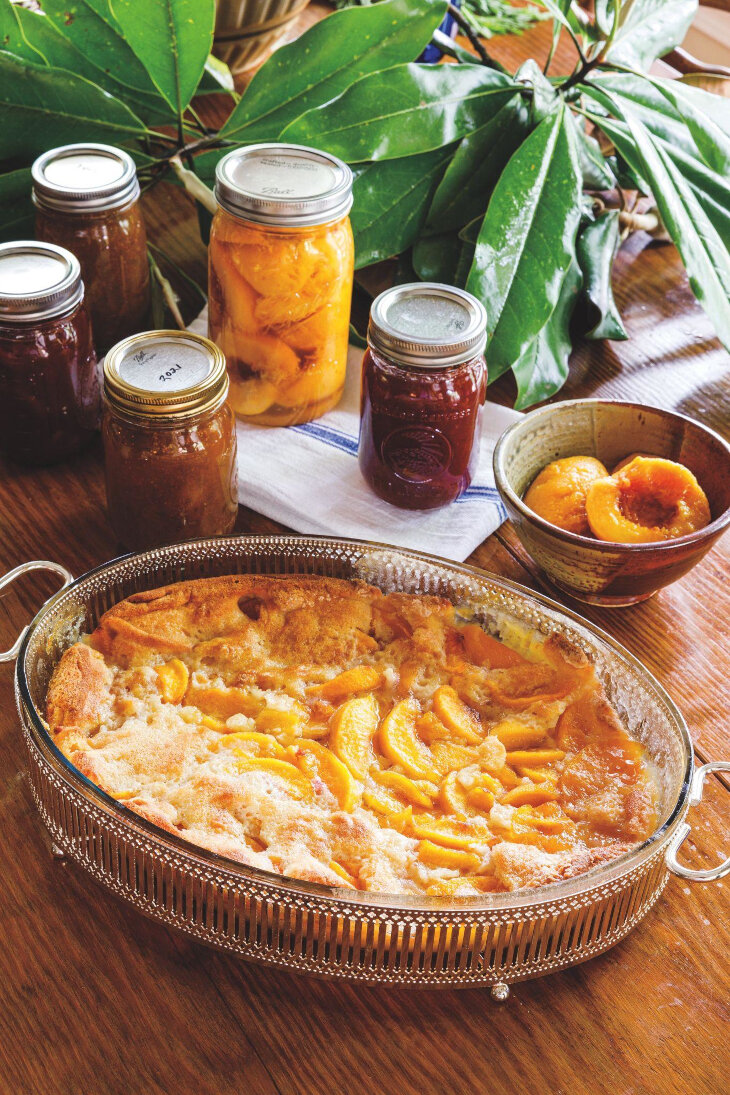 Peach Cobbler
Peach Cobbler

